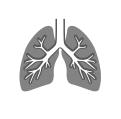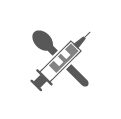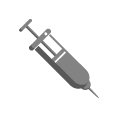Donor Qualification

Trali (Transfusion-Related Acute Lung Injury)
If you have ever been pregnant (including full-term pregnancy, miscarriage, abortion or ectopic pregnancy), you may donate:
- whole blood; and
- plasma by apheresis for use in manufacturing medication.
You cannot give:
- plasma by apheresis for transfusion purposes;
- platelets by apheresis.
QUESTIONS AND ANSWERS
TRALI is an infrequent pulmonary complication occurring within 6 hours of a transfusion. Breathing difficulty is the main symptom and, depending on the severity, it can cause the patient’s death.
This complication occurs in certain patients as a result of the transfusion of blood components containing antibodies, which can cause TRALI. These antibodies are mostly found in plasma and platelets.
Studies have established that women with a history of pregnancy are likely to develop these antibodies, whether the pregnancy was carried to term or was terminated due to miscarriage, abortion, or ectopic pregnancy.
No. The antibodies associated with TRALI pose no threat to donors.
No. Men, like women with no history of pregnancy, have few antibodies associated with TRALI. Accordingly, no particular measure will be applied to male donors.
There is no screening test available at Héma-Québec at the present time.
Can female plasma apheresis donors with a history of pregnancy continue to make donations?
Yes. From now on, plasma collected by apheresis from women with a history of pregnancy will be used to produce drug products such as albumin and immunoglobulins that will be used, in particular, to treat serious burn victims and premature babies or to treat people who cannot fight infections due to an immune deficiency.
Women with no history of pregnancy can continue to give plasma by apheresis. In such cases, the plasma will be used for transfusions in patients who need it.
Why can the plasma processed into drug products such as albumin and immunoglobulin be used without risk, unlike plasma given to a patient?
The plasma processed into drug products forms part of a pool obtained from many thousands of plasma donors. This dilution effect reduces the risk of transmitting the antibodies associated with TRALI.
Can female platelet apheresis donors with a history of pregnancy continue to make donations?
No. Women with a history of pregnancy will no longer be able to donate platelets by apheresis. However, they can continue to help save lives by donating whole blood. Donors in the Québec City region can donate plasma by apheresis at the Centre Globule Laurier Québec.
Women with no history of pregnancy can continue to donate platelets by apheresis.
Can female HLA-compatible and HPA-typed platelet donors with a history of pregnancy still give platelets by apheresis?
Yes. Female HLA-compatible and HPA-typed platelet donors may be asked to give platelets by apheresis. Indeed, given the scarcity and particular nature of this type of donation, platelet compatibility takes priority to save the life of a patient.
WHOLE BLOOD
What about whole blood donations?
A whole blood donation provides several blood products. Its processing results in three main components: plasma, platelets and packed red blood cells.
Women can continue to give whole blood whether or not they have already been pregnant.
Packed red blood cells from all donors, male or female, continue to be used for blood transfusions.
Platelets from whole blood donations from women without a history of pregnancy and from men are used for transfusions.
Finally, only plasma from male donors is used for transfusions. All plasma from women goes towards the production of medicine such as albumin and immunoglobins, which is used, among other things, to treat serious burn victims and premature babies or to treat people who cannot fight infections due to an immune deficiency.
For any question you can call at 1-800-847-2525 or write us at info@hema-quebec.qc.ca
- Child birth/Breast-feeding/Pregnancy

- Acupuncture/Electrolysis

- Age

- Allergies

- Cancer

- Cholesterol

- Dentist

- Diabetes

- Drugs

- Iron

- Hemoglobin

- Sore throat

- Creutzfeldt-Jakob Disease

- Body piercing/Tattoos

- Tick bite

- Weight

- Medication

- Sexual relations

- Cold

- Trali (Transfusion-Related Acute Lung Injury)

- Vaccinations

- Travel

- For more information, please contact our Donor Services at: 1 800 847.2525
